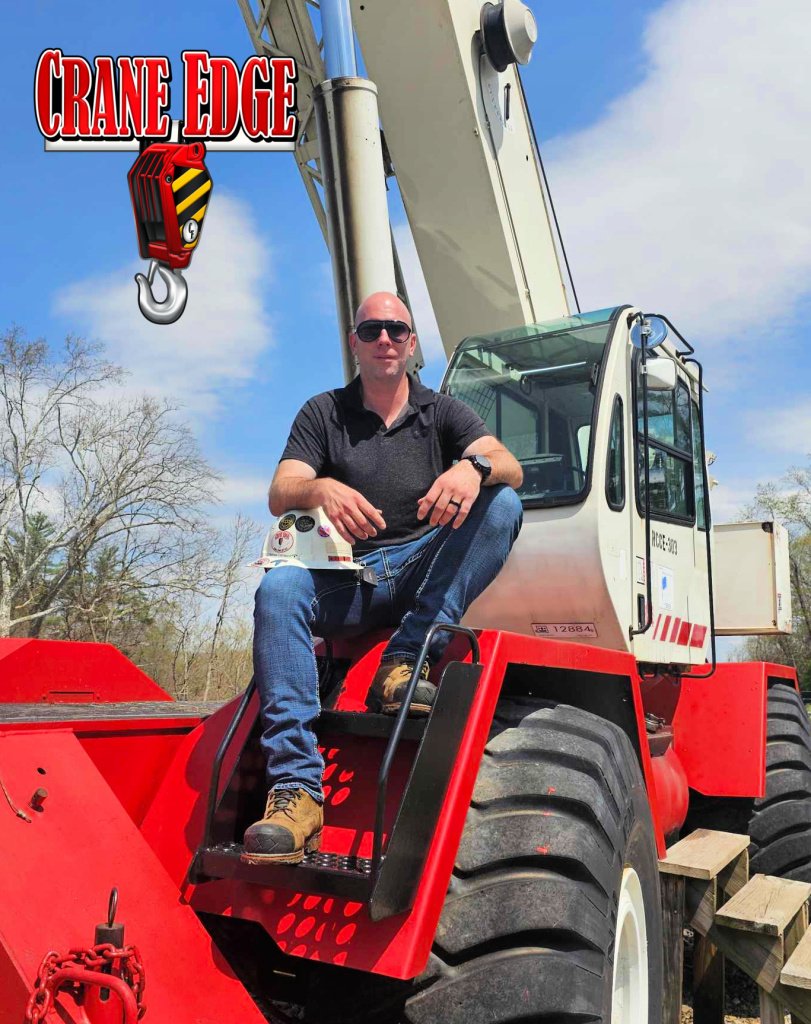What is your name and what do you do?
My name is Matthew Creameans, and I started NCCCO (National Commission for the Certification of Crane Operators) crane operator training when I was 17 years old. Crane operating is a family business, and I’ve operated cranes in a wide range of industries. Today, my business—Crane Edge, LLC—offers full-service training for NCCCO certifications from mobile cranes to Rigger Levels 1-2, Signal Person, and pretty much everything the NCCCO offers.
It’s a real boon to our state to have local organizations like yours where West Virginians can get trained and certified.
That is the whole reason we got into training in the early days. The law changed, and West Virginia was one of the first states in the nation to require NCCCO certification to operate a mobile crane. So, my father and a few family members started training and developed our operation into a fully accredited trade school which provides training to the general public as well as private customers. Today, I travel all over the nation to train people.
What’s the training process to get certified?
Well, it depends because we have a few different tiers. Our students can range from someone who’s brand new at 18 years old, and we’ve had students in their 70s. Some of the older experienced people already know a lot of the basics, and they can complete training in as little as a week. We offer a few different programs which can take up to 1-2 months to finish if you’re new to this field. We cater to just about everyone who falls on that spectrum, so it’s hard to put it into one package really.
The average cost for a newcomer to get trained and certified would start around $4,500 for the most part. There are financing options, and we have scholarship options available. We also partner with Workforce to assist with financial aid, as well as similar programs from a few of the surrounding states.
Do a lot of women apply for training or have jobs in this field right now?
In the last year, I have tried to encourage more women to participate through job fairs and other events. Recently, we’ve had more women than ever come through, and they were all brand new to this field. We’ve changed some things up to help those brand-new students get through training.
They only need a few weeks of training—let’s say from one month up to a month and a half—before they’re ready to work and earn some great money. We try to stay in touch with students after training and highlight their successes on our own social media platforms, so that’s another way we try to reach more women.
What kind of salary could a newly certified worker expect to earn as a crane operator?
I would expect anywhere from $30+ per hour for someone who’s newly certified through some great training and really wants to get out there. There are a lot of options and resources available for those who want to travel for work.
Is there anything about this line of work that would really surprise people?
The technology in these machines means this work is not as intimidating as it used to be. It’s great for someone who’s a little tech savvy and enjoys operating vehicle equipment. There is more to this job than just pulling levers.
How does one get started with training?
People who are interested can visit our website at craneedge.com and create an account. There’s some information there that’s free to everyone. Nowadays, our training is a blend of our web portal, classroom training, and a lot of hands-on practice. The equipment we use in the field is up to date, so we make sure there are no surprises for our students once they are out in the field.
We provide students with trainers’ information, so they still have access to us for help even after they’ve completed their training, and we do our best to provide answers when they need help out there in the field. We even encourage them to post questions on our social media if they want. We get a lot of phone calls for help. For example, it can be anything as basic as math. This morning I had a call from some folks who were getting ready to operate a manlift about 300-feet in the air. They just wanted reassurance with their calculations, so we assisted them with that. Oftentimes, it only takes us a few moments here and there to help someone.
Interview conducted, transcribed, and written by Marlynda Arnett, Program Innovation Leader for West Virginia Women Work.

